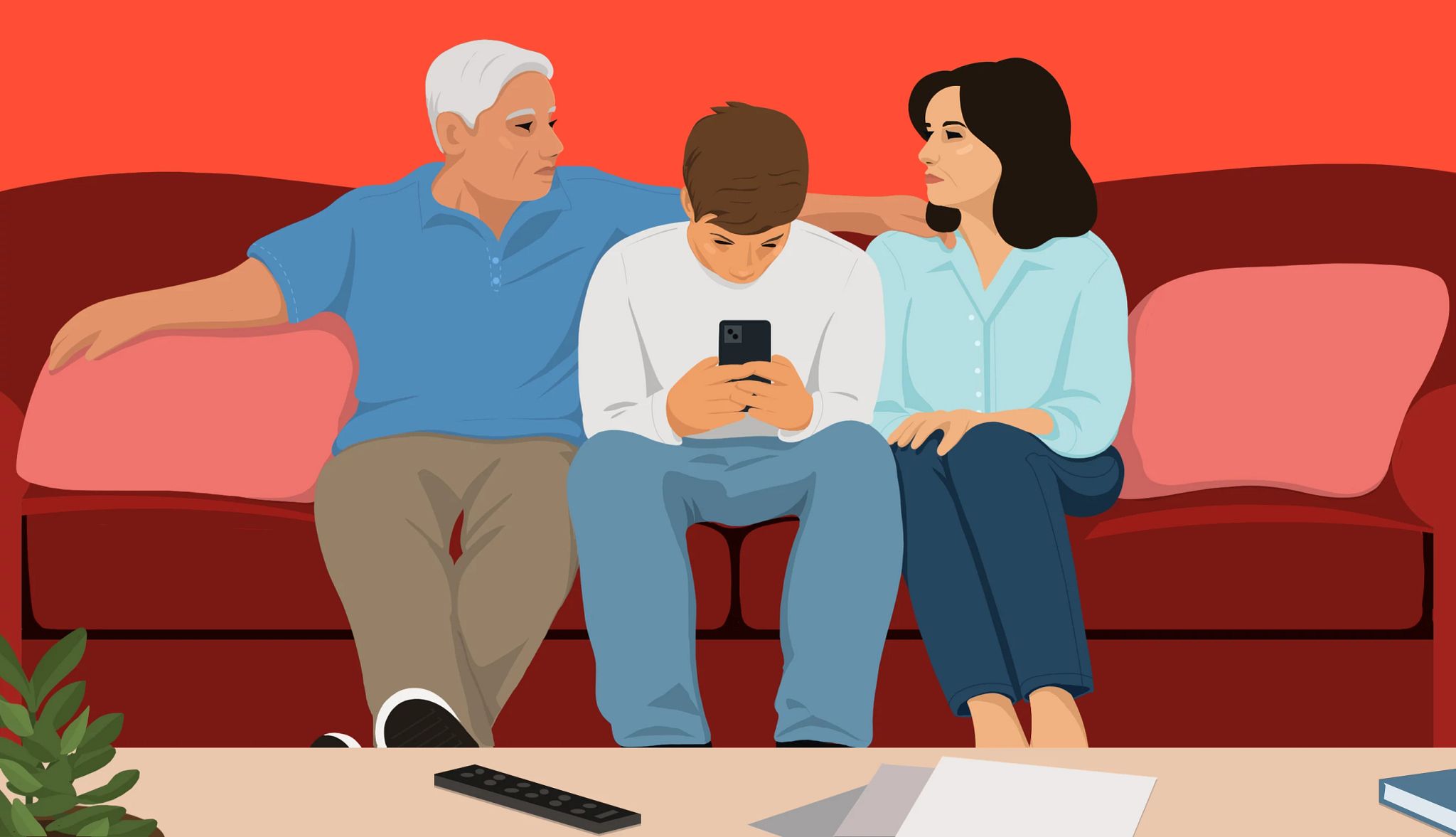AARP Hearing Center


It can be a little bit sad when the kids leave home for college or a job. But many couples find there’s an upside, too: It’s a great time to rediscover the passion and romance that may have faded away with years of carpooling, sporting events and PTA meetings.
Now you can canoodle in the living room uninterrupted! You have newfound energy for midweek romance!
But, as often happens, adult kids return home — to save money, to figure out their next steps. And that can leave you and your partner on separate ends of the couch.
While this, too, shall pass (we hope — don’t make that basement too comfy), our experts say there’s no reason to give up your reignited passion. It’s all about boundaries.


In the Mood
For AARP’s In the Mood column, writer Ellen Uzelac will ask experts your most pressing 50+ sex and relationship questions. Uzelac is the former West Coast bureau chief for The Baltimore Sun. She writes frequently on sex, relationships, travel and lifestyle issues.
Our kids have moved back home after college to save money. We’re happy to have them, but I feel like we just got our sex life back as empty nesters. They are in and out of the house at all times of the day and night, and it’s so stressful to try and find an intimate moment. Any suggestions?
I like how certified sex therapist Emily Jamea bluntly frames it: “At the end of the day, good boundaries and good expectations make good roommates. That’s how you need to think about this living arrangement at this season in your kids’ lives.”
Here’s our sex and relationship experts’ best advice.
First off, recognize that your relationship with your kids is different than it once was — as is theirs with you. As licensed marriage and family therapist Tameca N. Harris-Jackson notes, “A lot of adult children returning home still have in mind that Mom and Dad are exactly who they are when they left, when in fact things have changed.”
Have a family talk about the new dynamic — and keep it real. Like so many things, solutions often start with conversations.
Jamea, author of Anatomy of Desire: Five Secrets to Create Connection and Cultivate Passion, suggests saying something like: “Listen, I know it might make you uncomfortable to think about us as still having sex, but we really hope that you find someone at some point in your life you can sustain a lasting intimacy with. We are at a time in life now where we are really enjoying each other in that way.”
Explain that while you are delighted to have them under your roof again, you also don’t want to lose your spark, because as a couple, you love and value each other, Jamea says.




































































You Might Also Like
In The Mood
Writer Ellen Uzelac asks experts your most pressing 50+ sex and relationship questionsHow the ‘Big O’ Changes With Age
Here’s why sex may not be as intense as you get older — and what to do about it
I Want Out of My Perfectly Good Marriage
A woman says her husband is getting in the way of her self-discovery quest